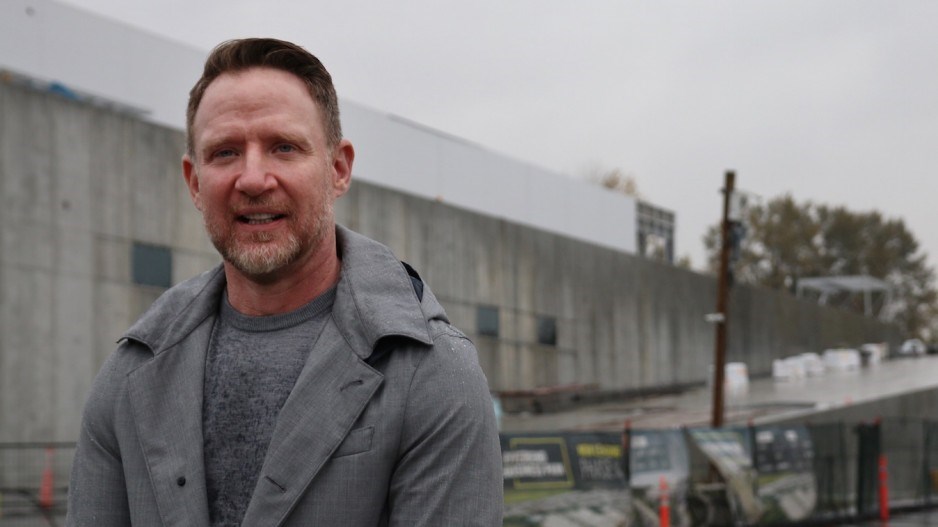Metro Vancouver's regional government is scheduled on October 29 to vote on a pivotal issue for the region's economy.
The 40 Metro Vancouver directors, who represent 21 municipalities, one electoral area and one First Nation, are set to determine whether to allow the City of Surrey to designate that rural land in South Campbell Heights can be used for business and employment purposes.
This is an important vote because the region has never needed industrial space more than it does now.
CBRE statistics show that region-wide, Metro Vancouver in the second quarter of 2021 had an all-time low 0.6% industrial real estate vacancy rate. Colliers pegs the region’s industrial vacancy rate at an even lower record level: 0.5%.
"Every quarter, over the last year, we have had a new historic low for our industrial vacancy rate," CBRE senior vice-president Chris MacCauley told BIV. "We also have the lowest vacancy rate in North America out of major industrial markets."
CBRE statistics show that the average asking price for leased industrial space in Metro Vancouver jumped 7.2%, to $15.01, in the second quarter of 2021, compared with the previous quarter.
Since the start of 2017, the asking price to lease industrial space in the region has soared 72.9%.
Industry insiders and supporters say that the region is in a crisis, with insufficient industrial land for local companies to expand, and for foreign companies to be able to locate regional distribution centres.
Low vacancy means local manufacturers could be pushed further east, into the Fraser Valley – prompting trucks to spend more time on roads congesting traffic, spewing greenhouse-gas emissions and adding distribution costs to the price of goods.
Metro Vancouver’s approval is not a sure thing.
Opposition to allow the redesignation comes from directors, such as Richmond councillor Harold Steves, who would like the land to stay rural in part for food security, and environmental sustainability reasons.
He believes that the region has sufficient industrial land, and that owners need to densify their land with multi-storey warehouses.
MacCauley called that proposal unrealistic because it would require owners to evict tenants from viable real estate in order to build multi-storey buildings.
Industrial buildings that have more than one storey also tend to use upper storeys for office use.
He pointed to Oxford Properties building a two-storey, 700,000-square-foot facility that it describes as the first large-bay, multi-storey industrial property in Canada.
That property has an exterior ramp to allow the second storey to function as a warehouse because pallets can be moved from trucks outside and into the second floor, without needing access to the interior ground floor.
Surrey's proposal relates to changing the designation for 617 acres of land, with most then eligible for warehouses, but slightly less than 200 of those acres to be dedicated as conservation areas.
The city's planning and development department told BIV in an email that it wants to be able to allow industrial businesses in the South Campbell Heights area because "demand for industrial land continues to increase, and has been outpacing the supply."
Not having more industrial land threatens "the region's economic well-being," the department said. It added that in parts of South Campbell Heights it also wants to allow offices that are accessories to industrial buildings, or that are complimentary to light industry.
Developers, such as Beedie, have been angling to build needed warehouses if Surrey gets the go-ahead to allow industrial development in the area.
"We don't own anything yet," said Todd Yuen, president of Beedie's industrial property division.
"We have contracted to purchase approximately 60 gross acres of land."
Yuen told BIV that Beedie has been working with various individual landowners in the area to strike deals to purchase, and consolidate, land if Surrey can get approval to allow industrial development.
"The city has enough experience to know that in order for a developer to viably rationalize the servicing and off-site costs, a developer has to have enough land under their control in order to rationalize those costs," Yuen said. "What the city did a good job of is just clearly articulating the reality of what it's going to take in order for these lands to be brought to market."
He said that real estate brokers and city staff helped enlighten current land owners to realities of the real estate business, including how much would be fair value for land, and about how important it is to consolidate land to enable larger warehouses to be built.




